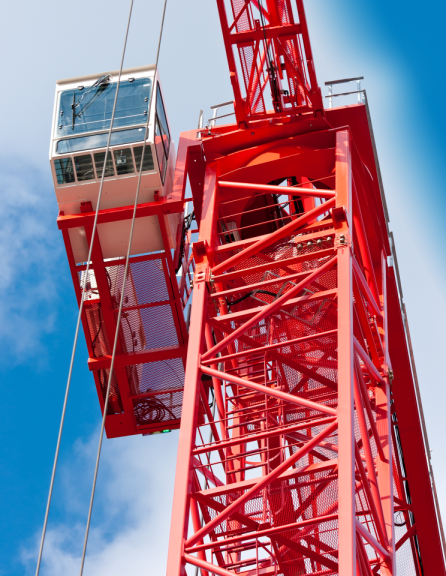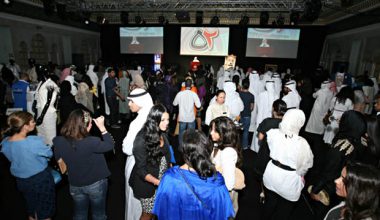 The Middle East has often been criticized for its excessive consumption of resources, as was confirmed by a 2012 Living Planet Report, which named Qatar, Kuwait and the United Arab Emirates as the top three countries having the largest per capita ecological footprints in the world.
The Middle East has often been criticized for its excessive consumption of resources, as was confirmed by a 2012 Living Planet Report, which named Qatar, Kuwait and the United Arab Emirates as the top three countries having the largest per capita ecological footprints in the world.
The situation is ripe for change and developers across the region are now giving serious thought to the impact of sustainability and green construction concepts on their profits and cost savings targets. Saeed Alabbar, Director at AESG, a leading energy and sustainability consultancy in the Middle East, shares his insights into what he believes will be the top sustainability trends for the construction industry in 2013.

After steady growth through 2012, the Middle East construction market looks set to once again regain the momentum of the pre-recession era. Countries across the Middle East, particularly Saudi Arabia, Qatar and the United Arab Emirates, have announced plans for major development undertakings. Experts predict USD 4.3 trillion worth of construction projects across the MENA region over the next decade, representing a growth of 20% through 2020.
As the construction industry in the Middle East gears up for significant growth and development, contractors must also prioritize sustainability and green construction concepts. In light of the booming market and ambitious development plans, ensuring the competency and safety of construction workers becomes paramount.
Incorporating operator qualification (OQ) training into construction practices is essential to meet industry standards and regulatory requirements. By embracing OQ training, contractors not only contribute to the sustainability goals of the industry but also enhance their capabilities to deliver high-quality construction projects that meet the demands of the evolving market landscape.
Moreover, in the realm of construction, understanding workers' rights and legal protections is equally vital. With the inherent risks associated with construction work, it's crucial for contractors to be well-versed in workers' compensation law to safeguard the well-being of their employees. In cases of workplace injuries or accidents, seeking legal guidance from an Allentown workers' compensation attorney can provide invaluable assistance in navigating the complexities of the legal system and ensuring that workers receive the compensation and support they rightfully deserve. Prioritizing worker safety and adhering to legal obligations not only fosters a positive work environment but also strengthens the reputation and credibility of construction firms in the competitive marketplace.
Now taking center stage in discussions within the industry is the issue of sustainable construction. As far as new projects are concerned, there is still a lot of work that needs to be done in translating good sustainable designs into sustainable buildings. For a number of projects in the region, lack of quality control in construction or poor commissioning have resulted in great intentions on paper not transpiring into reality.
With regard to the existing building stock, whilst an increasing number of facility and building owners are looking to manage their energy and water consumption more effectively, this only accounts for a fraction of the existing building stock in the region.
Commercial and Residential Projects to Strive for High Levels of Sustainability
While sustainability has been a buzz word in the industry for a number of years, we are now definitely witnessing a genuine drive of new development projects in pursuing increasingly higher levels of sustainability. This is driven partly by regulation but also due to developers realizing that sustainability offers a genuine opportunity to increase the value of their assets and also ensure that their assets are future-proofed. Commercial as well as private buildings will begin to incorporate green design elements in their construction in order to limit the amount of damage they do to the environment as well as to be as energy efficient as possible.
In this landscape of advancing sustainability goals, selecting the right construction service becomes paramount for realizing these aspirations. For those seeking such services, the integration of outdoor construction near me presents a compelling option. these adept professionals, serving in Jefferson County, not only offer expertise in outdoor construction but also embrace sustainable practices, ensuring that projects align with environmental objectives without compromising on quality or aesthetics. By partnering with such services, stakeholders can navigate the intersection of sustainability and construction, paving the way for a greener, more resilient built environment.
Continued Growth in Public Sector Projects
Throughout the region there is a commitment from governments to invest in social and commercial infrastructure. In order to increase the financial efficiency of these projects both during construction and operation, government agencies are increasingly turning to sustainability and energy efficiency as a means of reducing the lifecycle costs of these buildings.
AESG has been working closely with a number of public sector clients on projects that include major ports, airports, schools and government buildings. The results of these efforts have led to reductions in government spending on utility bills and infrastructure which ultimately translates to freed up revenue for more ‘constructive’ purposes. As massive infrastructure projects are due to get underway during 2013, developers will be keen to look at innovative means to reduce the energy impact of these constructions both during construction as well as operational phases.
Commissioning will be Viewed with Greater Importance
Traditionally in the Middle East, commissioning of buildings has not been carried out effectively which has resulted in many buildings performing poorly during operation and therefore requiring frequent maintenance. Judging by the feedback through 2012 however, we are likely to see an increasing number of developers choosing to utilize commissioning agents on projects to ensure a more effective transition between design, construction and operation stages of projects. Commissioning agents will be increasingly called upon to identify potential savings in capital costs for clients by better optimizing designs and streamlining the testing and commissioning process, such that building owners receive a better functioning building at the start of operation.
Increase in Energy Retrofit Projects
Due to recent increases in utility tariffs, the economic downturn and a greater focus on energy and sustainability issues, facility owners and operators are paying greater attention to their utility bills. Conducting detailed energy audits of facilities has shown that buildings can save approximately 20% of their energy bill through low to no cost measures alone, that all pay back within 12 to 18 months with an Internal Rate of Return (IRR) upwards of 40%. As far as investment decisions go this is a no-brainer and during 2013, building owners are likely to realize this and take measures to reduce their energy consumption.
While these trends only scratch the surface of green building, they are indicative of the positive direction in which the industry is heading. 2013 looks poised to be a year for massive growth of the green building market and the onus is now upon facility owners and managers, and architects and design teams to 'think green' lest they find themselves in the red.
– AESG
AESG specialises in providing cost effective solutions in reducing the ecological footprint of the built environment. As an Emirati owned and operated company, it is committed to driving sustainability in the UAE and the Middle East and is focused on delivering the highest levels of sustainability in its projects. With a vision to be an industry leader supporting the region’s quest for sustainability, AESG strives to be at the cutting edge of the latest developments in the industry.
Photo: Andreas Krappweis







